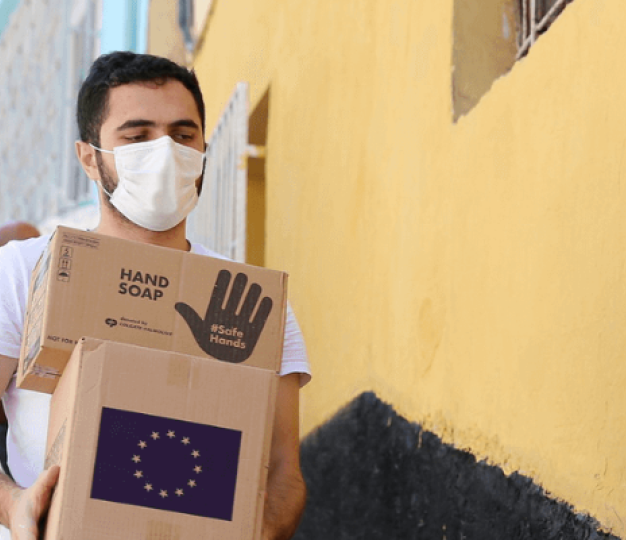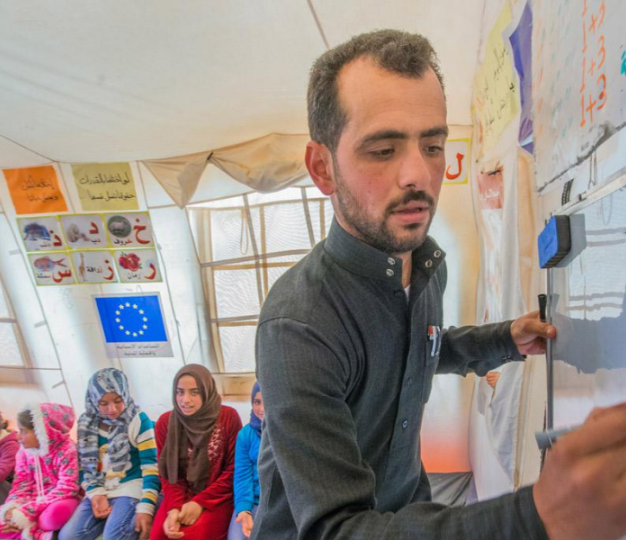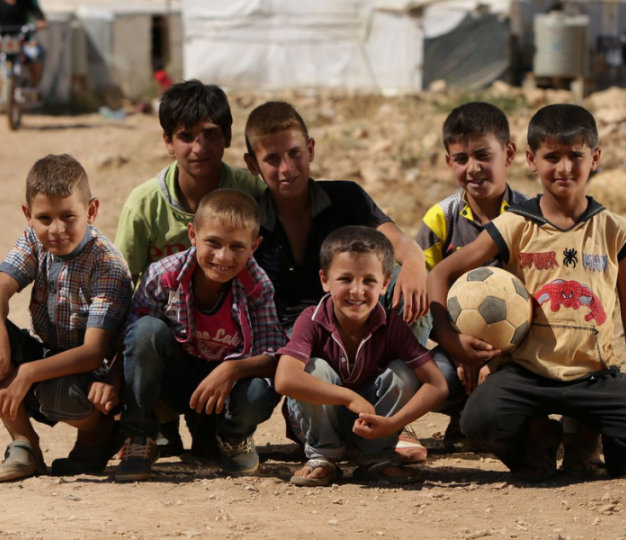RELATIONS WITH THE EU
The European Union and Syria
Since the start of the conflict, the EU has repeatedly called for an end to the unacceptable violence in Syria, which continues to cause the suffering of millions of Syrians and the immeasurable destruction of infrastructure and livelihoods. The EU also condemns the flagrant violations of human rights, breaches of international humanitarian law, use of chemical weapons, and arbitrary detentions perpetrated mainly by the Assad regime.
Nevertheless, the EU remains committed to the Syrian people, who continue to suffer from a standstill political process and an increasingly dire humanitarian situation. The situation in Syria prevents millions of refugees, many of whom are hosted in neighbouring countries, from going home in a safe, informed, voluntary and dignified way.
Since the outbreak of the conflict in 2011, the EU and its Member States have mobilised around €33 billion to help those affected, in Syria and in the region. This makes the EU collectively the largest provider of international aid in response to the Syrian crisis.
Political Relations
The European Union believes there can be no military solution to the conflict in Syria, and that the only viable way forward is a United Nations-led political solution, in line with UN Security Council Resolution 2254. The European Union fully supports the efforts of the UN Special Envoy for Syria in this endeavour.
The EU's strategic objectives in Syria are focused on the following areas:
- An end to the war through a genuine political transition, in line with UNSCR 2254, negotiated by the parties to the conflict under the auspices of the UN Special Envoy for Syria, and with the support of key international and regional actors.
- Save lives by addressing the humanitarian needs of the most vulnerable Syrians across the country, in a timely, effective, efficient and principled manner.
- Promote democracy, human rights and freedom of expression by strengthening Syrian civil society organisations.
- Promote accountability for war crimes with a view to facilitating a national reconciliation process, supporting transitional justice, and addressing the issue of missing persons.
- Support the resilience of Syria’s population and society.
The European Union will continue mobilising all the tools at its disposal in support of the Syrian people, in order to reach a negotiated political solution in line with UN Security Council Resolution 2254 and to help create the conditions for a brighter future for all Syrians.
Until then, the EU position on Syria will remain firm: no normalisation with the Syrian regime, no lifting of sanctions, and no reconstruction assistance, until the Syrian regime engages meaningfully in a political process.
Humanitarian Aid
The European Union has been a leading donor for providing humanitarian assistance both inside Syria and in the region, focused on addressing life-saving and life-sustaining needs. The assistance, coordinated by the Commission’s Directorate-General for European Civil Protection and Humanitarian Aid Operations (DG ECHO), is delivered through humanitarian partners, including international NGOs, UN agencies, the ICRC and their local implementing partners. They provide the most vulnerable with health care, food assistance, water, sanitation and hygiene services, protection, shelter, education and livelihoods support. This includes cross line operations and cross border from Turkey, Jordan, Lebanon and Iraq.
As everywhere else in the world, ECHO Syria operates with great autonomy, based solely on humanitarian principles of independent, impartial, neutral and needs-based assistance. The ECHO Syria Country Office in Beirut, as well as ECHO offices in Damascus, Erbil and Gaziantep, allow the EU to monitor and scale-up humanitarian aid operations inside Syria and to engage directly with humanitarian partners on the ground.
The EU also provides significant support to refugees and their host communities in the countries neighbouring Syria, namely Lebanon, Jordan, and Türkiye, as well as Iraq and Egypt. The EU maintains that, for now, conditions are not in place for the return of refugees and internally displaced persons in a safe, informed, dignified and voluntary way.
Non-Humanitarian Assistance
The EU’s non-humanitarian assistance inside Syria, coordinated by the Commission’s Directorate-General for European Neighbourhood and Enlargement Negotiations (DG NEAR) aims at supporting the resilience efforts of Syrian citizens wherever possible at a grassroots level.
At the core of the assistance is the provision of medium-term support to Syrians themselves, as communities or individual agents of change in their quest to live in a peaceful and prosperous society. Thus, socio-economic rights and the right to lead a dignified life are emphasised through actions which ensure the availability of decent work and access to essential services. In a context where the on-going economic crisis continues to deteriorate, building the resilience and creating opportunities for the Syrian population are key to maintaining social cohesion.
The main focus of the EU’s non-humanitarian assistance is on education, health, livelihoods, community and CSO support, human rights protection, women’s empowerment, transitional justice and accountability.
Robust risk monitoring and mitigation measures form the backbone of this support, including time-sensitive analysis of programme locations and activity-specific risks, security and context developments, third-party monitoring, partners and entity vetting, as well as thematic analysis across geographies.
Support to Stability and Peace Building
The Syrian conflict is one of the largest areas for the EU’s crisis response actions, managed by the Commission’s Service for Foreign Policy Instruments (FPI). Activities currently include:
- Support to UN-led and UN-brokered international mediation efforts emphasising the need for a negotiated political solution to the conflict in line with UNSCR 2254 and with support from key international and regional actors.
- Support to accountability for crimes committed during the conflict, including by supporting the International, Impartial and Independent Mechanism, created at the United Nations, which assists investigations and prosecutions of core international crimes, including war crimes, crimes against humanity and genocide committed in Syria since March 2011.
- Support to stabilisation and the prevention of further radicalisation in areas in northeast Syria liberated from Da’esh by the Global Coalition with actions focusing on the rehabilitation and reintegration of vulnerable individuals, mental health and psychosocial support, support for social cohesion, and life skills and vocational training, among others.
- Response to post-earthquake needs in north-west Syria, in the aftermath of the devastating earthquakes of February 2023.
FPI’s projects are implemented in partnership with a wide range of actors, including international and local NGOs, EU Member State agencies, and UN organisations.
Brussels Conference
Supporting the Future of Syria and the Region
Syria continues to be a high priority for the European Union, as testified by the organisation of the Eighth Brussels Conference in 2024. The Brussels Conference is the largest foreign policy event organised by the EU annually.
The objective of the Brussels Conference is threefold: 1) to keep Syria high on the international agenda and to reaffirm unity and commitment towards a political transition in Syria in the framework of UNSCR 2254; 2) to provide an opportunity to engage and deepen dialogue with Syrian civil society (in the framework of the “Day of Dialogue”); and 3) to generate significant financial pledges for humanitarian and non-humanitarian assistance to Syrians, both in Syria and in surrounding countries, as well as their host communities (in the context of a Ministerial Meeting).
The Brussels Conference is a moment to listen to Syrian voices in their diversity, to remobilise international support for those affected by the crisis, and to revive momentum towards a political solution.
For more information on this year’s Brussels Conference, please visit its webpage here.





